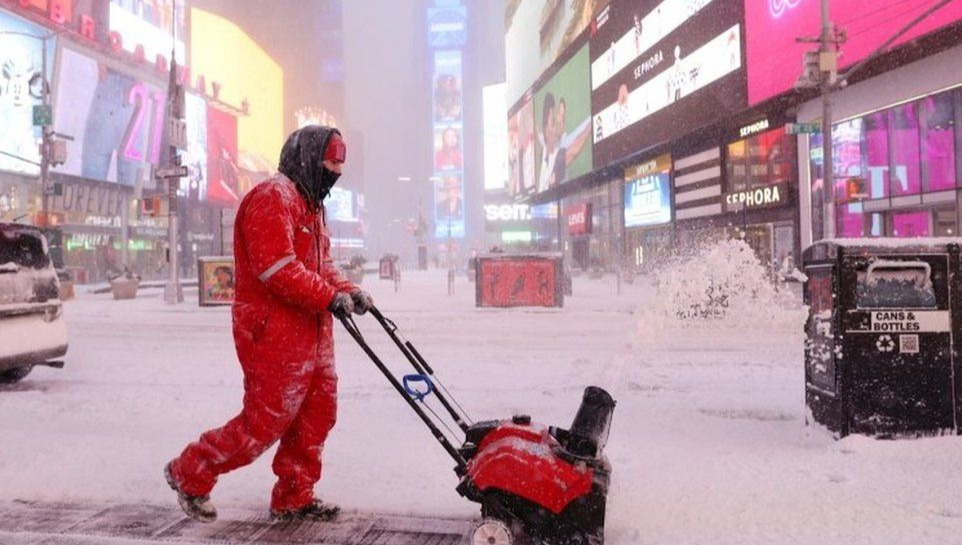
New York City's Times Square
New York, January 29 (RHC)-- The eastern coast of the United States is getting hit by blizzard conditions on Saturday, as the region is hunkering down for a major snow storm. Heavy snow and hurricane-force winds are forecast in some areas, with five U.S. states declaring emergencies ahead of the storm's arrival.
Experts warn of "historic" snowfall in some places and flood warnings have been issued near the coast. More than 80,000 households across Massachusetts were suffering power outages by Saturday morning.
Forecasters say there is a chance the storm, known as a Nor'easter, will blanket the Boston area with up to 2 feet (61 cm) of snow. The current record of 27.6in (70cm) within 24 hours was set in 2003.
Over 5,000 U.S. flights have also been cancelled across the weekend because of weather disruption.
Experts say the storm will undergo bombogenesis, meaning that colder air is expected to mix with warmer sea air, leading to a swift drop in atmospheric pressure. The process leads to a so-called bomb cyclone. "Travel should be restricted to emergencies only," warned the National Weather Service (NWS) in Boston.
"If you must travel, have a winter survival kit with you. If you get stranded, stay with your vehicle."
The powerful storm began to hit the country's coast in the early hours of Saturday morning, with inches of snowfall already blanketing a number of states. Bryce Williams, a meteorologist based in the state, told the New York Times the heaviest would hit there by Saturday evening before conditions clear up across the weekend. "If you don't have to be out and about, we're trying to say: Stay home until Sunday," he told the newspaper.
Winds are expected to strengthen, possibly reaching hurricane-level speeds, according to the NWS and Accuweather. A blizzard warning has been issued throughout the north-east, the first time such an alert has been issued since 2018. 75 million people are in the path of the storm, according to CBS News.
Florida is also expected to see some of its coldest temperatures in years, leading to iguanas - a cold-blooded lizard species - to become immobilised and fall out of trees.

